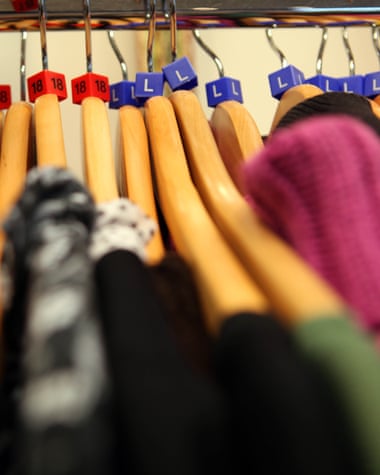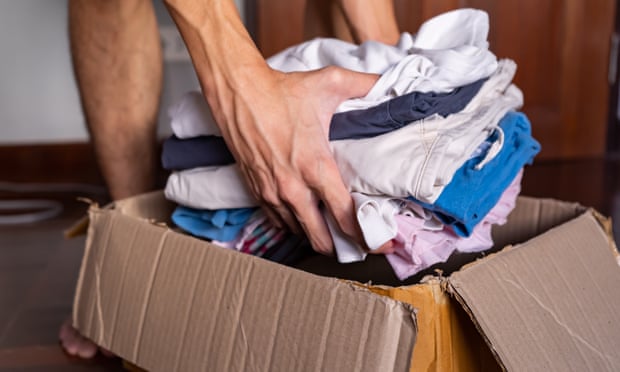When she first came to Britain as a refugee from Nigeria six years ago, Kemi had a three-month-old daughter, a room in a shared house and £5.39 to survive on each day.
Because her daughter has a dairy intolerance, much of that meagre allowance went on buying food and soya milk for her baby, meaning Kemi herself frequently went hungry. Finding money for clothes, even from a charity shop, was out of the question.
“Children grow every month, especially at that small age. It was difficult for me [because] I had to keep us safe and warm,” Kemi says now.
The only thing to do was to get up early and walk the streets with her daughter, hoping to scavenge clothes that someone might have dumped by a charity bin or on a pavement. “It felt so shameful sometimes when people were passing by, seeing me pick in the bin to find clothes to wear. [But] I didn’t care what people [thought], I had to keep my daughter safe.”

After four years, Kemi was granted refugee status and secured her first job interview – unsurprisingly, she had nothing to wear. Instead of having to scrabble or beg for something appropriate, however, she was referred to a small social enterprise called Give Your Best, which asked her her size and what kind of clothes she liked. “And they gave me three beautiful shirts. Those clothes were like gold to me … They asked me what I actually wanted. That makes you feel valued.”
The initiative had been launched during the Covid lockdown by Sol Escobar, a much-travelled Uruguayan now living in Cambridge who had spent several years volunteering at refugee camps in northern France and who felt “desperate”, when Covid hit, about how severely the refugee community would be affected.
A friend put her in contact with a household of refugee women who, unable to shop online and with charity shops closed, couldn’t access any clothing. Escobar realised she had surplus clothes she could donate, and appealed to her friends and networks for help.
She was swamped with offers, but didn’t want to overload the women with potentially inappropriate clothing. “So I thought, if I take photos of all of these items and put them on an Instagram page, they can all choose the things that they actually want. Maybe we can take away that bit of that power imbalance, of the refugee being the person who receives things without having any choice.”
Eighteen months later, Give Your Best has processed almost 11,000 items of clothing donated by 1,500 people, and has more than 800 refugee women approved to “shop” for free on its virtual shopfront.
It is aiming for much more, however. Having reached the very limit of donations and requests it could handle through Instagram, even with the support of hundreds of volunteers, the enterprise has just launched a new digital platform that will allow it to hugely upscale, becoming what Escobar calls “a Depop for donations”.
Like the hugely successful clothing resale app, clothes are photographed and uploaded to Give Your Best, where customers select those they like and donors then post the item. Crucially, however, no money changes hands.
As well as giving choice to its users and minimising fashion waste, Escobar says one unforeseen consequence has been the small but intimate connections forged between donor and shopper. Many donors choose to include a supportive note and a small gift of sanitary products or chocolates – hugely welcomed by recipients, but also a reminder that “on the other side of your package, there’s a woman who is your size and has your fashion sense, because she’s shopping from your wardrobe”.

The new platform means they can now offer children’s clothes, with menswear to come; eventually they aim to open donations to others in clothing poverty, and potentially share their tech to replicate the model overseas. “There’s plenty of fashion waste, and plenty of people who need clothes,” says Escobar.
Having volunteered with the organisation, Kemi is now its first member of staff, directing women in a similar vulnerable position to a place where they too can choose clothes they like and that fit them, for free.
She has kept a file of the notes she has been sent with items of clothing. “They say [good] wishes, hope you enjoy your item, know that somebody in the UK cares about you. Imagine how that feels.”